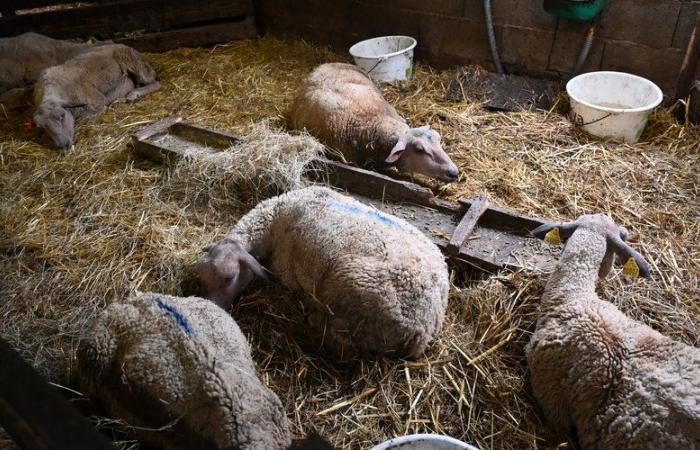
the essential
The three epidemics which simultaneously hit Tarn farms have a lasting impact on the functioning of the sectors. In addition to animal mortality, breeders also suffer numerous indirect losses… which are not subject to any state aid, which the unions denounce.
For Tarn breeders, the account is not there. The state has released funds to help them deal with various epidemics. But he still refuses to recognize the indirect losses linked to these. However, it is indirect losses, even more than animal mortality, that weigh on farms.
Since this summer, the department has been affected by an epidemic of bluetongue serotype 8. To this was added FCO 3. As well as a third epidemic: epizootic hemorrhagic disease (EMD), very present in the food sector. Ségala and Castrais.
These three diseases are transmitted by a small midge. There is therefore no solution other than vaccination. “But this has a significant cost on farms which already have tight cash flow,” says a breeder. Only vaccination against FCO 3 is free. For FCO8, an emergency fund has been set up for sheep.
The entire department is affected by these three diseases. Only goat herds are relatively spared. But sheep and cattle were seriously affected. During its last bulletin, in mid-November, the livestock center counted 328 outbreaks of MHE and 350 of FCO8 in the department. In Ségala, deer and deer were even hit, according to the FDSEA which relies on the testimony of hunters.
Also read:
Blue tongue disease: “without help, we will have difficulty holding on”. A call for help from a Tarn breeder
In addition to the loss of animals, these diseases have significant consequences on farms. Sick animals lose fertility. They produce less or more milk. Hence significant drops in production. “We have to isolate the animals to treat them. We have to give them treatment. It’s not nice to see your animals like that. It’s the equivalent of covid on a fragile person,” assures Cyril Bousquet, breeder cattle (milk) in Sérénac. Many pregnant animals abort. There are therefore fewer births.”
Currently, in beef cattle there is a shortage of calves,” assures Cyril Bosquet. As a result, the department's slaughterhouses have reduced their activity. “This endangers the sectors,” he insists. In August, a sheep breeder in Montredon -Labessonnié, explained that affected by FCO 8, in 2023, he had suffered a 30% drop in lambs, i.e. a loss of almost 10. 000 €.
Also read:
This year, blue tongue disease affects the south of Tarn
Cyril Bousquet even “lost” his two sterilized bulls following illness. In addition to the loss of more than 3,000 euros, all the work on genetics is also lost.
Faced with this situation, the FDSEA and the JA therefore request that veterinary costs and indirect losses be taken into account, as well as the extension of the free vaccination zone in MHE. They also want the creation of an antigen bank to anticipate the arrival of new serotypes. The 1 and the 12 are present in Europe.
If nothing is done for them, many farms will stop their activity. A disaster for the department. “In the mountainous sector if we no longer have ruminants, it will be complicated,” assures Cyril Bousquet. “The occupation of the territories will decrease. We will change the agricultural model. It will be the end of family farms”, conclude the farmers who consider it “urgent” that the State act.





